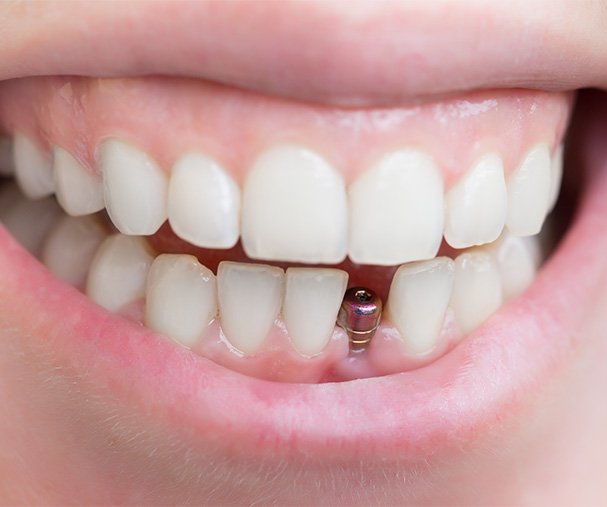Dental implants are the best tooth replacement option out there. They replace the roots of the missing teeth, so they allow for a wide range of benefits that you can’t find with dentures or dental bridges. One of these benefits is their astonishing success rate of over 95%. That being said, dental implants can still fail if you aren’t careful. The quicker we can see you, the more likely that we can save your smile with dental implant salvage treatment. Read on to learn more about dental implant failure, how it happens, and what we can do about it.
Dental Implant Failure & Salvage – Sparta, NJ
Keep Your Smile Complete!

Why Do Dental Implants Fail?

The most common reason for dental implant failure is a condition called “peri-implantitis.” This happens when bacteria and infection destroy the connective tissue from around the implants, weaking the surrounding structure. In most scenarios, this is the result of poor oral hygiene and gum disease that haven’t been treated. Other factors that could contribute to dental implant failure include injury, failure, osseointegration, and some medical conditions, like uncontrolled diabetes.
Symptoms of Failed Dental Implants

Dental implant failure doesn’t only happen immediately after surgery. It can also occur many years after you’ve gotten your dental implants. Here are some common symptoms of dental implant failure so you can be on the lookout for them.
- Pain & discomfort
- Gum recession surrounding the implant
- Loose dental implant
- Difficulty chewing
- Gum inflammation
How Dental Implant Salvage Works

If you are concerned that there is something wrong with your dental implants, give us a call. We are happy to thoroughly examine your smile and discuss the symptoms that you have been experiencing. After this, we will put together a treatment plan to restore the health of your smile. Several treatment methods could be necessary. The most common ways that we address dental implant failure are deep cleanings, antibiotic treatment, and other infection control methods. The quicker we can address the problem, the more likely we can save your tooth!
